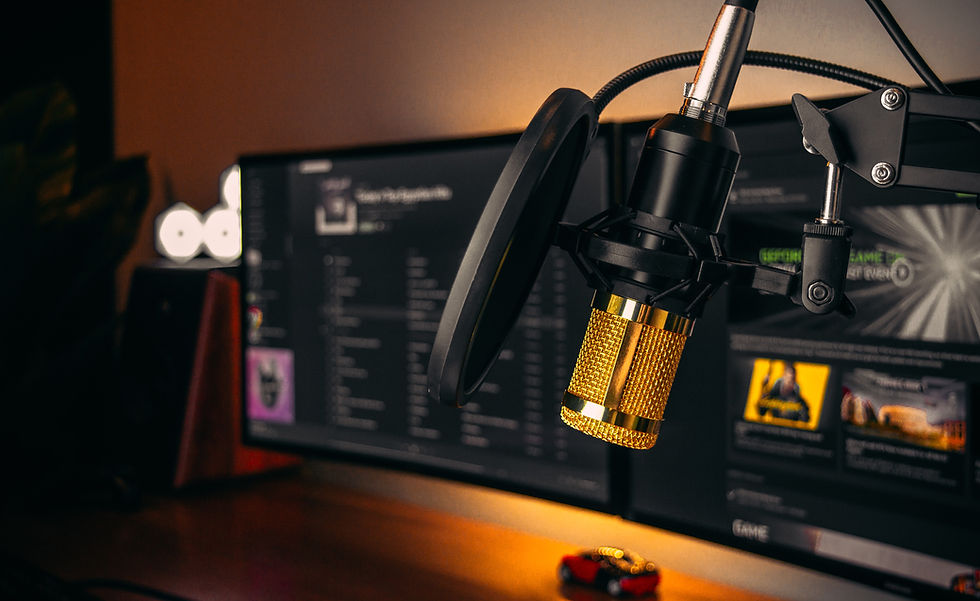Building a Brand as a Solo Artist: Branding Strategies for Independent Musicians
- Sonique
- Jan 19, 2024
- 4 min read
Updated: Mar 20, 2024

Introduction
In the fast-paced music industry, the key to success for independent musicians lies beyond just talent. Effective personal branding for solo artists is crucial for standing out. This guide dives into how to build a personal brand that resonates with your audience and sets you apart in the world of independent music.
The Power of Personal Branding in the Music Industry
Personal branding for musicians is an amalgamation of artistic style, ethos, and communication. It's what makes independent artists memorable and distinct beyond their music. It involves everything from your music brand identity to your digital music marketing strategies.
Why Solo Artists Need a Strong Brand
With intense competition in the indie music scene, a strong personal brand is a game-changer. It’s not just about visibility but creating an enduring connection with fans. For a solo musician, branding is the bridge between music and a loyal fan base.
Developing Your Unique Musical Identity
Defining Your Artistic Persona: Align your music brand with your unique artistic identity. Whether you're an indie artist, a rock musician, or a soulful singer-songwriter, your brand should reflect your musical genre and personality.
Visual Branding in Music: Your visual brand, including your logo, album art, and fashion, should consistently communicate your musical identity. This is crucial for indie musicians to create a recognizable image in the digital music marketplace.
Consistency Across Platforms: Ensure a consistent brand image and message across all digital platforms and physical merchandising. This consistency helps build brand recognition and professionalism for solo artists.
Crafting Your Story: Every musician has a unique story. Share yours to connect emotionally with your audience. Storytelling is a powerful tool in music marketing.
Strategies for Building and Enhancing Your Music Brand
Leveraging Social Media for Musicians: Use platforms like Instagram and TikTok to showcase your brand and engage with fans. Social media marketing is vital for solo artists to build a following.
Memorable Live Performances: Your live shows are where your brand comes to life. Ensure that every performance reflects your brand identity.
Collaborations and Networking: Collaborate with other artists or brands that complement your image. Networking is crucial for indie music artists looking to expand their reach.
Content Marketing for Musicians: Regularly release content like music videos and behind-the-scenes footage to strengthen your brand. Content marketing is key to keeping your audience engaged.

Success Stories in Music Branding
Exploring the realm of music branding, we encounter inspiring tales of artists who've masterfully crafted their public personas, becoming benchmarks in the industry. These narratives are not just about musical prowess but about the strategic development of a personal brand that resonates with a diverse audience, a key lesson for any emerging artist or musician looking to make their mark in the music industry.
Consider Lady Gaga, a paragon of transformative branding in the music world. Known for her eclectic style and theatrical performances, she seamlessly blends her musical talent with a unique fashion sense, creating a brand that's as much about visual artistry as it is about auditory appeal. Her approach, which could be studied in any music marketing and branding course, demonstrates the power of a multidimensional brand in building a global fan base and achieving commercial success.
Tyler, The Creator, offers another compelling study in personal branding. He extends his influence beyond music to realms like fashion and festival organizing, embodying the entrepreneurial spirit that is crucial in today's music business. His brand is a testament to the effectiveness of a DIY approach and authenticity, attributes highly valued in the indie music scene and often discussed in music business management.
In the hip-hop genre, Kendrick Lamar stands out for a brand deeply anchored in narrative and social consciousness. His approach to branding, focusing on storytelling and authentic expression, resonates with audiences seeking depth and substance in music, a strategy often highlighted in artist development programs and music industry seminars.
Adele's brand strategy diverges from the conventional pop star route. Focusing on the emotional depth and soulfulness of her music, she has cultivated a brand that emphasizes authenticity and emotional connection, resonating with a vast audience and exemplifying the power of genuine branding in achieving widespread acclaim.
These artists underscore the importance of building a strong personal brand in the music industry. Their success stories serve as prime examples for solo artists and musicians in artist branding workshops, showcasing how a well-crafted personal brand can lead to profound connections with audiences and sustainable success in the highly competitive music landscape.

Conclusion
For solo artists, a robust and authentic brand is essential for carving a niche in the competitive music industry. As you grow as a musician, let your brand evolve with you. Stay authentic, and your brand will resonate with your target audience.
Discover more strategies for building a successful music career, including advanced branding tips, in "The Solo Artist's Blueprint for Success: Build, Market, Thrive."
Are you an aspiring indie artist working on your music brand? Share your journey or questions about music branding and let's create a thriving community of independent musicians!
_edited.png)
Comments